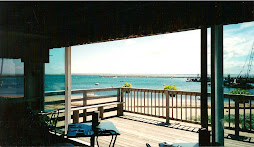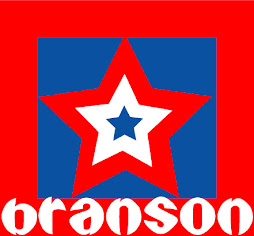Oh my.. Lieborgate's turning out to be a real super inclusive club/scandal. Zero Hedge.
Two days ago we made the "missing link" connection between traders in Libor manipulating banks (all of which curiously had a hub in Singapore: something else for the media that has been about 4 years too late on this topic to focus on) and hedge funds (most of which curiously centering on the otherwise sleepy bastion of banking: Geneva, Switzerland). The immediate aftermath was the loss of trading privileges of one Michael Zrihen. We are fairly certain this is just the beginning of the hedge fund bust: when all is said and done, many more funds will have terminated traders they hired for reasons (and kickbacks) unknown over the past 2 years as Lie-bor manipulators sought to put a clean firewalled break between their old employer and current one. Because apparently sometimes the regulators are that stupid and can be confused by a simple job change. And while many have assumed (and even calculated based on completely groundless assumptions) that only BBA member banks have benefited from Libor manipulation, the reality is that hedge funds were just as complicit and benefited just as much if not more. What is worse, they took advantage of their whale client status with manipulating banks, and courtesy of Total Return Swap and other leveraged gimmicks, made far more money when they co-opted two or more banks to do their bidding. Impossible you say: hedge funds would never be so stupid. Oh very possible: we present exhibit A - Brevan Howard, a "fund, with assets of $20.8 billion as of Dec. 31, has never had a losing year and returned 14.4 percent annualized from its April 2003 inception through the end of 2008" as Bloomberg said in a made to order profile of the funds recently. Perhaps there is a very simple reason for this trading perfection: "Brevan Howard telephoned on 20 Aug 2007 to ask the defendant to change the Libor rate," according to a paper filed with the Singapore High Court cited by Bloomberg."
Here is The Telegraph with a smoking gun that was promptly buried in the avalanche of sudden media coverage in the aftermath of the Barclays Liborgate settlement.
That one statement should be enough to send shivers into the heart of whoever may be General Counsel of Brevan Howard (and many other mega funds right now whose names will make front page appearances in the coming weeks), as it provides the banks with something that so far has been missing. Motive. Because while it may be difficult to prove that Barclays or RBS benefited from Libor manipulation, pandering to a mega client is very, very easy to prove - there is always a trace. It also makes it very easy for the prosecution to include hedge funds, which are just as hated by the general populace as big banks if not more, into what is shaping up as one perfect litigation storm (and distraction from the real culprit here: the global central bank cartel).
Telegraph goes on:
The plot just gets thicker and thicker.
And there it is: "Took requests from clients" not just manipulated rates for its own interest. And this is where the universe of guilty parties explodes exponentially, and reaches not only Geneva Switzerland, but virtually every single hedge fund that had even a modest fixed income trading link over the past decade.
Watch this space closely: it will get very hot soon.
Yes. Yes it will get hot, very hot, very soon!
Two days ago we made the "missing link" connection between traders in Libor manipulating banks (all of which curiously had a hub in Singapore: something else for the media that has been about 4 years too late on this topic to focus on) and hedge funds (most of which curiously centering on the otherwise sleepy bastion of banking: Geneva, Switzerland). The immediate aftermath was the loss of trading privileges of one Michael Zrihen. We are fairly certain this is just the beginning of the hedge fund bust: when all is said and done, many more funds will have terminated traders they hired for reasons (and kickbacks) unknown over the past 2 years as Lie-bor manipulators sought to put a clean firewalled break between their old employer and current one. Because apparently sometimes the regulators are that stupid and can be confused by a simple job change. And while many have assumed (and even calculated based on completely groundless assumptions) that only BBA member banks have benefited from Libor manipulation, the reality is that hedge funds were just as complicit and benefited just as much if not more. What is worse, they took advantage of their whale client status with manipulating banks, and courtesy of Total Return Swap and other leveraged gimmicks, made far more money when they co-opted two or more banks to do their bidding. Impossible you say: hedge funds would never be so stupid. Oh very possible: we present exhibit A - Brevan Howard, a "fund, with assets of $20.8 billion as of Dec. 31, has never had a losing year and returned 14.4 percent annualized from its April 2003 inception through the end of 2008" as Bloomberg said in a made to order profile of the funds recently. Perhaps there is a very simple reason for this trading perfection: "Brevan Howard telephoned on 20 Aug 2007 to ask the defendant to change the Libor rate," according to a paper filed with the Singapore High Court cited by Bloomberg."
Here is The Telegraph with a smoking gun that was promptly buried in the avalanche of sudden media coverage in the aftermath of the Barclays Liborgate settlement.
Tan Chi Min, a former RBS trader who claims he was wrongfully dismissed by the bank after it fired him for allegedly trying to manipulate Libor - the average rate at which banks lend to each other - said he had received the request in 2007 from Brevan Howard.Oops.
"Brevan Howard telephoned on 20 Aug 2007 to ask the defendant to change the Libor rate," according to a paper filed with the Singapore High Court cited by Bloomberg.
That one statement should be enough to send shivers into the heart of whoever may be General Counsel of Brevan Howard (and many other mega funds right now whose names will make front page appearances in the coming weeks), as it provides the banks with something that so far has been missing. Motive. Because while it may be difficult to prove that Barclays or RBS benefited from Libor manipulation, pandering to a mega client is very, very easy to prove - there is always a trace. It also makes it very easy for the prosecution to include hedge funds, which are just as hated by the general populace as big banks if not more, into what is shaping up as one perfect litigation storm (and distraction from the real culprit here: the global central bank cartel).
Telegraph goes on:
The court filing alleges RBS "received this request without objection". Brevan Howard is not a party to the lawsuit and is not being investigated or sued for any alleged wrongdoing. RBS and Brevan Howard both declined to comment.Ah yes our old friends: the ubiquitous Delta Traders who somehow have a finger in everything from ETF trading, to gamma, to convexity trades, and now- serving as the nexus between Libor manipulation demanding clients and in house Libor fixers.
Mr Tan claimed in his filing that Scott Nygaard, head of short-term markets finance at RBS, knew about the call from Brevan Howard. However, the filing contained no further details to support his allegations. However, he is reported to have said he would provide further evidence at a later stage.
The legal case follows Mr Tan's firing in December over allegations he had attempted to improperly influence RBS's Libor-setting staff between 2007 and 2011. Mr Tan, who worked for RBS in Singapore as head of delta trading, claims he was wrongfully dismissed by the bank.
The plot just gets thicker and thicker.
Mr Tan is claiming $1.5m (£943,000) in bonuses and 3.3m RBS shares that he says the bank owes him in pay. He claims in his lawsuit that asking for changes in Libor was "common practice" among RBS traders and that the bank "took requests from clients" to alter the rate.
And there it is: "Took requests from clients" not just manipulated rates for its own interest. And this is where the universe of guilty parties explodes exponentially, and reaches not only Geneva Switzerland, but virtually every single hedge fund that had even a modest fixed income trading link over the past decade.
Watch this space closely: it will get very hot soon.
Yes. Yes it will get hot, very hot, very soon!
































































































No comments:
Post a Comment